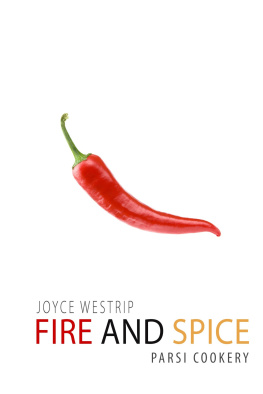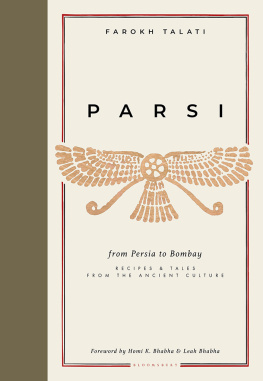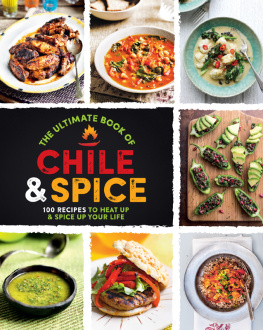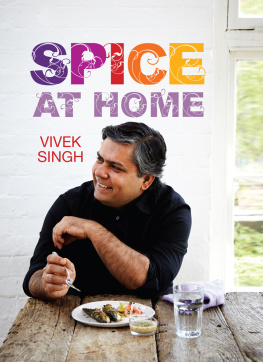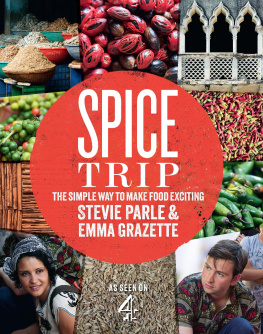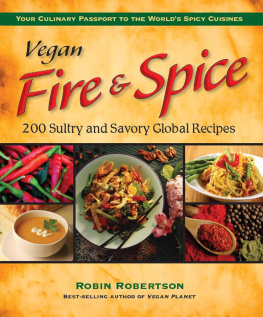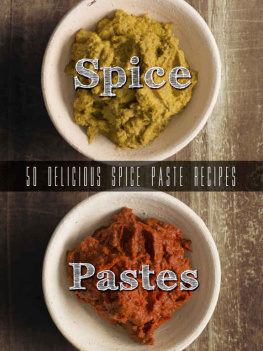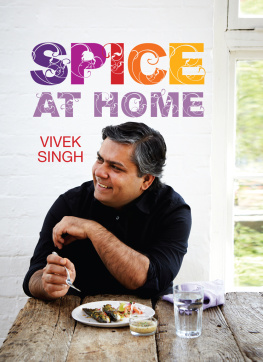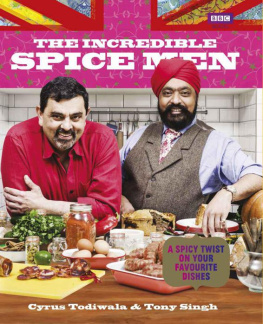JOYCE WESTRIP was born in southern India in 1929, moved to England in 1947 and now lives in Perth, Western Australia. Fascinated by Indian history and culture, she is a regular visitor to the subcontinent and a collector of rare Indian cookbooks. She has presented radio and television programmes on Indian cooking as well as giving talks and classes on the subject. She is the author of Moghul Cooking: Indias Courtly Cuisine and An ABC of Indian Food, and was awarded the Medal of the Order of Australia in 2000 for her work promoting cultural links between India and Australia.
BY THE SAME AUTHOR
An ABC of Indian Food
Moghul Cooking: Indias Courtly Cuisine
First published 2006 by Serif
47 Strahan Road
London E3 5DA
Copyright Joyce Westrip, 2006
Foreword copyright Pat Chapman, 2006
Decorations copyright Jane Smith, 2006 Copyright Serif, 2006, Rddler, 2021, Cadzbuddy,2021.
Cover Design by The Rddler
The moral rights of Joyce Westrip and of Pat Chapman have been asserted.
All rights reserved. No part of this publication may be reproduced, transmitted or stored in a retrieval system, in any form or by any means, without prior permission in writing from the publishers.
British Library Cataloguing in Publication Data.
A catalogue record for this book is available from the British Library.
Library of Congress Cataloging-in-Publication Data.
A catalog record for this book
is available from the Library of Congress.
ePUB Designed by Rddler Printed and bound in Malaysia by Forum
Pbk ISBN 978 1 897959 41 1
PDF e-book ISBN 978 1 909150 28 7
For my husband Charles
CONTENTS
FOREWORD
IT WASNT LONG after I had founded the Curry Club in 1982 that I received a membership enquiry from Perth in Western Australia. It was from one Joyce Westrip. I hadnt advertised in Australia, and I hadnt heard of Joyce, but in her typically thorough way she had heard of me. I soon got to know her and of her achievements. Born to British parents in Bangalore, Joyce is an Indophile, a true devotee of the worlds most colourful, most irritating, most lovable country. She cooks, writes, reads, teaches, breathes and loves India and Indian food. Since then Ive visited her home in Perth, and shes been to mine in England; we always have much in common to talk about.
Joyce lived for eighteen years in southern India and has revisited the subcontinent on numerous occasions. Indeed, she once came on one of my Gourmet Tours of India. Such trips can be very vexing, especially when otherwise educated and civilised beings choose to become the tour-leaders visitors from hell. For no good reason seven-star luxury becomes the subject of complaint. They decide that this and that are not to their liking - the rooms at the Sheraton Agra, the food at Delhis Bukharra (the best tandoori restaurant in the world), the fact that fish has bones. And why does room service take so long to make samosas at 3 oclock in the morning? On the group that Joyce was with, things came to a head when some members balked at giving a pathetic 100 rupees (about 70 pence) each as a tip to our coach-driver of ten days. Generosity is one of Joyces hallmarks and she was far from being a complainant. In fact,
Joyce herself had led tour groups and, seeing frustration building up in me, she took me aside and made me laugh, telling of her experiences with irritating group members. On one occasion, after years of requests, she and her group were granted an audience with the then Prime Minister, Indira Ghandi. After her group left, an exalted Joyce talked of the great honour they had just received. She was met with surprise by some of the group, who thought that tea and cakes with the leader of the worlds largest democracy was normal procedure for tour groups. On another occasion, her group was staying under canvas in the jungle near a hill station, as was clearly stated in their itineraries. Being quite unlike their seven-star hotel luxury, most were complaining as they went to bed in their tents. Joyce was prepared for such an eventuality. She always kept paper cups and a bottle of Scotch in her luggage. She poured generous measures and popped the cups through each tent flap, saying, Heres your medicine. Next day a sheepish group appeared and peace broke out again.
Fire and Spice is an accurate description of Joyce on a mission as well as a very apt title for her book. It also sums up the Parsis and their cooking. Some years ago I was fortunate enough to take a short course in Parsi cookery at a college in Mumbai, which gave me an enduring delight in this unique cuisine as well as a wealth of Parsi friends in India and the UK. Foremost amongst them is Karan Billimoria who created Cobra Indian Beer in 1992 and built up the brand by delivering cases of lager to British curry houses from the back of a Citroen 2CV. Within a decade, he was turning over 50 million. He is absolutely typical of the Parsi drive that Joyce describes in her illuminating introduction. I went to Karans wedding in Secunderabad, a typically Parsi affair, with 500 guests. Uniquely for India, the guests sit along one side of long tables, while numerous courses are served by waiters on the other side of the table. There is just one true Parsi restaurant in the UK; I wish there were more, but, as Joyce explains, Parsis are few in number. However, Joyces assiduous researches and her Parsi-style drive have created this book, and we now have the opportunity to experience authentic Parsi food at home.
The little that most of us know about Parsi dishes is confined to what we glean from a two-liner at the curry house, where dhansak and patia are described on menus as Persian dishes. And that, you might think, is that. But, as Joyce shows, there are dozens of Parsi recipes, whether for fish, pulses, meat or breads, using as wide a range of ingredients as may be found in any cuisine. Fire and Spice is a wonderful, confidently articulate, definitive cookbook. I cant think of a Parsi recipe which has been omitted. Joyces historical facts are correct, and her recipes are unambiguous, clearly set out, and above all they work, something that cannot be said of all food writers.

